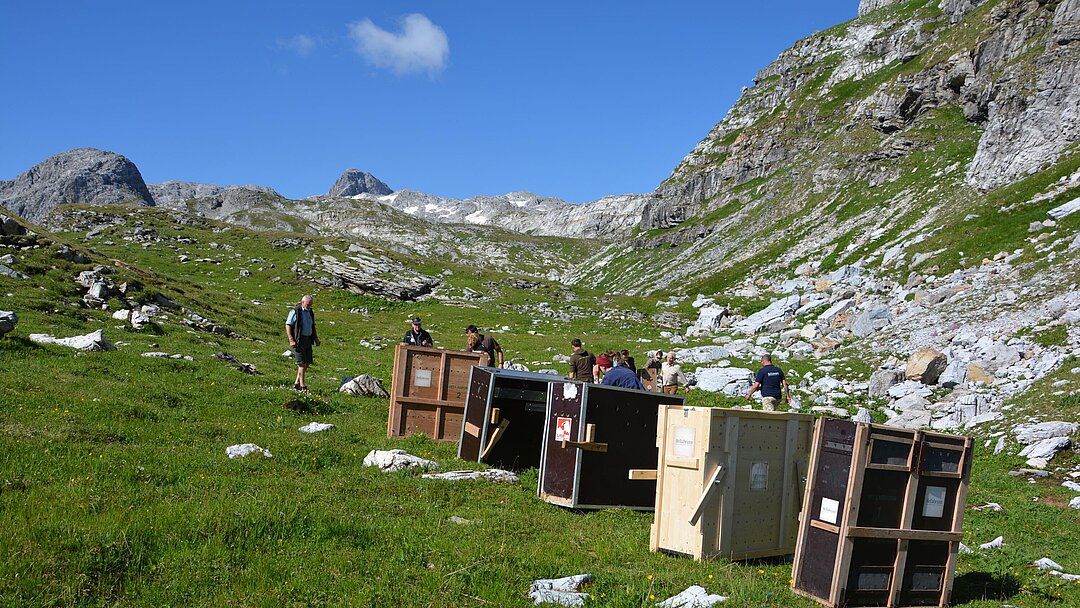
The group - two bucks and a doe born at Hellabrunn Zoo last summer, as well as seven other ibex from zoos in Innsbruck, Nuremberg and Görlitz - completed the last stage of their trip to the Austrian Alps by helicopter. The trip to the release site at 2,200 m above sea level had actually been planned for Wednesday, but was postponed until the next day due to bad weather. Thursday brought bright sunshine and clear visibility; the ideal conditions ensured a smooth journey for the ibex.
In the run-up to the release, the ibex from Hellabrunn Zoo were given a detailed health check by the vets to make sure that the animals were in good physical condition for life in the Alps. The actual release of the ten animals into the wild by the keepers only took a few minutes – and within a short time the ibex had all disappeared into the scree fields of the steep mountain slopes. In the coming weeks and months, the animals will adapt to their new environment and the weather: at the end of summer their fur will begin to change – the ibex will first moult and then gain a thicker winter coat.
The release into the wild represents the third reintroduction of Alpine ibex in the Gasthofgebirge mountains in recent years. Ibex were first resettled in the region in 2014 and then again 2015. Prior to the launch of the project, an extensive habitat suitability assessment was carried out, in which aspects crucial to the survival of the animals in the wild such as food supply in summer and winter and slope conditions were evaluated.
The population has thrived since the first resettlement: local wildlife biologists estimate that there are now 50 – 60 Alpine ibex living in the region, including the new arrivals. The latest release into the wild is important for the reintroduction project as it contributes to the genetic refreshment of the existing population. In the mid-19th century, the Alpine ibex was on the verge of extinction, but has since been able to recover thanks to conservation and reintroduction projects.
Under the current campaign, Hellabrunn Zoo previously released two male Alpine ibexes into the Oberbergtal valley in Austria in July last year. "We are very proud that the release went so smoothly and that we are once again able to actively participate in protecting biodiversity in native habitats,” says zoo director Rasem Baban.
Verena Dietl, chairwoman of the supervisory board and mayor, adds: “I am pleased for the three Hellabrunn Alpine Ibex that now live in the Salzburger Land region and can contribute to the preservation of the Alpine Ibex population there. This further release of a species that was once almost extinct clearly shows how important zoos are for the preservation of biological diversity.”